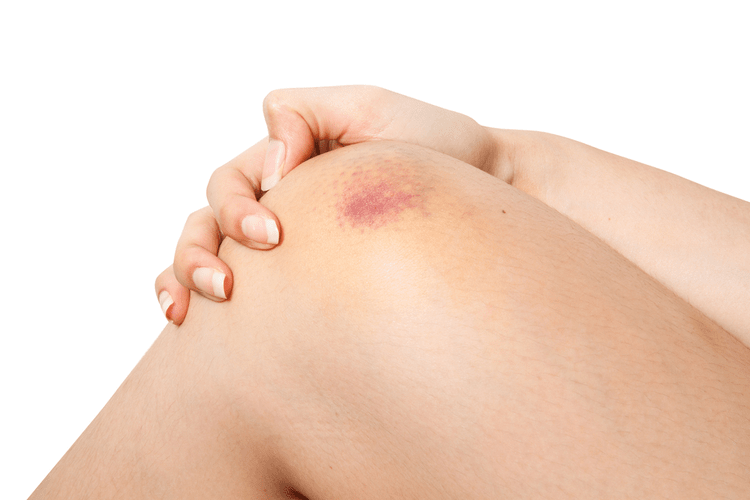Widely known for its medicinal properties, ketamine’s effects have made it a popular addition to the party scene. It has also joined the ranks of GHB (gamma hydroxybutyrate) and Rohypnol (Flunitrazepam) as a date rape drug. John C. Umhau, MD, MPH, CPE is board-certified in addiction medicine and preventative medicine. For over 20 years Dr. Umhau was a senior clinical investigator at the National Institute on Alcohol Abuse and Alcoholism of the National Institutes of Health (NIH). An overdose of ketamine can cause unconsciousness or slowed breathing, which is very dangerous. The World Health Organization (WHO) estimates that, when injected, lethal doses of ketamine begin around 11 mg/kg of body weight.
- While users report feeling complete bliss on ketamine, consuming high amounts of this drug can produce effects similar to a near-death experience.
- It is sometimes used off-label for pain relief and can provide sedative effects.
- More research on how ketamine affects addiction is needed, but it may change how your brain deals with cravings, motivation to quit a drug, and controlling behavioral reactions.
Ketamine Withdrawal
While ketamine isn’t the most fatal of substances when used alone, developing an addiction to this drug can greatly affect quality of life. For ketamine to be helpful in addiction treatment, it must be used under the close care of medical professionals. Recreational use could lead to addiction and other dangerous effects. The people who were dependent on alcohol got ketamine through an IV during the second week of a 5-week motivational enhancement therapy session. The people who had cocaine addictions got ketamine through an IV for 5 days, in addition to 5 weeks of mindfulness relapse prevention therapy. In a medical setting, doctors give low doses of ketamine over a longer period of time.
- The people who were dependent on alcohol got ketamine through an IV during the second week of a 5-week motivational enhancement therapy session.
- Within 3 hours, at least half of the active ingredients in ketamine consumed will have left the body.
- Getting support from friends, family, and professional facilities can assist you in overcoming your addiction and living your life free of substances.
- Treatment for ketamine addiction often involves some type of psychotherapy, such as cognitive-behavioral therapy (CBT), motivational enhancement therapy, family therapy, or group therapy.
Ketamine and Addiction Treatment
Ketamine is a compound with many potential benefits for the treatment of mental disorders as well as many risks, making it a “hot topic” in the field of psychiatry. Ketamine was first used in medical procedures for anesthesia in the 1960s. Ketamine has a relatively short half-life (the time required for active substances in the body to reduce by half). Within 3 ketamine addiction hours, at least half of the active ingredients in ketamine consumed will have left the body.

Ketamine can be dangerous, particularly when combined with other substances. It is largely non-fatal when used alone—there is little on record of a lethal dose of this drug in humans. However, this drug can be fatal because it is usually combined with other substances like alcohol (which also has sedative effects) or hallucinogens like LSD and PCP. The Sober living home substance is misused because its effects are similar to PCP.

What Is Ketamine Addiction?
Ketamine addiction also makes it difficult for people to function as they normally do in their daily life and activities. If substance misuse disrupts work, school, and personal relationships, it can indicate a ketamine addiction. When people try to stop using ketamine, they may also experience symptoms of withdrawal. While ketamine overdoses are not strongly linked to death, consuming large amounts of this drug can be fatal. Combining ketamine with other substances can increase this risk.
What Does It Mean To Have a Substance Abuse Problem?
By Elizabeth PlumptreElizabeth is a freelance health and wellness writer. She helps brands craft factual, yet relatable content that resonates with diverse audiences. Ketamine can disrupt the senses, judgment, and motor function for up to 24 hours after use. These effects have seen a growing and worrying use of this drug for date rape.
What Is Ketamine?
Addiction can negatively impact quality of life, physical health, mental well-being, and relationships. If you think you may have a ketamine addiction, reaching out for help is not a weakness. Getting support from friends, family, and professional facilities can assist you in overcoming your addiction and living your life free of substances. However, researchers are now looking at whether there might be some benefits in the fight against addiction.
It can also help develop new coping skills and ways of thinking. While the drug is largely eliminated from the body within 14 to 18 hours after the last dose, it can also have longer-term effects. People who have used this drug report harsh flashbacks even weeks after the drug has been cleared from the body. This drug has been linked to conditions like depression, hysteria, memory loss, and high blood pressure in regular users. While users report feeling complete bliss on ketamine, consuming high amounts of this drug can produce effects similar to a near-death experience. There are different ways to identify a person the signs of a potential ketamine addiction.
Find more top doctors on
We’ll be examining the symptoms to look out for, and factors that can increase the risk of developing a dependence or addiction to ketamine. This article will also look into trusted treatments that can help overcome ketamine misuse. Where possible, the support of friends and family is also fundamental when recovering from ketamine addiction. This leaves plenty of room for excessive amounts of ketamine to be taken, amounts which can lead to an overdose. Likewise, snorting and injecting ketamine are common ways to consume ketamine, so this permits quick entry into the bloodstream.
Top doctors in ,
Ketamine was linked with better outcomes when used along with behavioral and motivational therapy in two clinical trials on substance misuse treatment. Treatment for ketamine addiction often involves some type of psychotherapy, such as cognitive-behavioral therapy (CBT), motivational enhancement therapy, family therapy, or group therapy. More research on how ketamine affects addiction is needed, but it may change how your brain deals with cravings, motivation to quit a drug, and controlling behavioral reactions. Ketamine treatment might also make behavioral therapy more effective, which is a big part of overcoming addiction. No medications have been FDA-approved to treat ketamine addiction, but doctors may prescribe other medications to help treat co-occurring mental health conditions. Hospitalization may sometimes be required to manage serious withdrawal symptoms.
A ketamine overdose can occur when the substances is taken in large amounts or when combined with other substances. Because of its addictive nature, this drug is more commonly used in veterinary clinics to sedate animals. Ketamine is available as an injectable liquid but is also abused in powder form. As a Schedule III drug, ketamine is available for medicinal use with a prescription. It is sometimes used off-label for pain relief and can provide sedative effects. In addition, the FDA now recognizes the antidepressant benefits of ketamine when it is combined with oral depressants.
